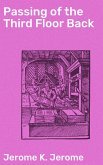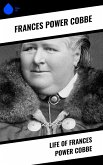Sarah Grand's 'Ideala' is a groundbreaking novel written in 1888 that explores feminist themes and challenges the societal expectations placed on women during the Victorian era. The book follows the life of the protagonist, Ideala, as she navigates the constraints of traditional gender roles and seeks to establish her own identity and independence. Grand's writing style is characterized by its feminist undertones and critical examination of patriarchy, making 'Ideala' a significant work in the literary context of the late 19th century. The novel's thought-provoking narrative and exploration of gender dynamics resonate with readers today, highlighting the timeless relevance of Grand's themes and ideas. Sarah Grand, a prominent feminist writer of her time, drew inspiration from her own experiences and observations of the limitations placed on women in Victorian society. Her advocacy for women's rights and empowerment is evident throughout 'Ideala,' showcasing Grand's commitment to challenging societal norms and advocating for gender equality. By delving into the complexities of women's lives and the struggle for autonomy, Grand sheds light on the importance of individual agency and self-determination. I highly recommend 'Ideala' to readers interested in feminist literature, Victorian fiction, and social critiques. Sarah Grand's insightful depiction of women's struggles and aspirations offers a compelling narrative that continues to resonate with modern audiences, making 'Ideala' a must-read for those seeking thought-provoking and socially relevant literature.
Dieser Download kann aus rechtlichen Gründen nur mit Rechnungsadresse in A, B, BG, CY, CZ, D, DK, EW, FIN, F, GR, H, IRL, I, LT, L, LR, M, NL, PL, P, R, S, SLO, SK ausgeliefert werden.









